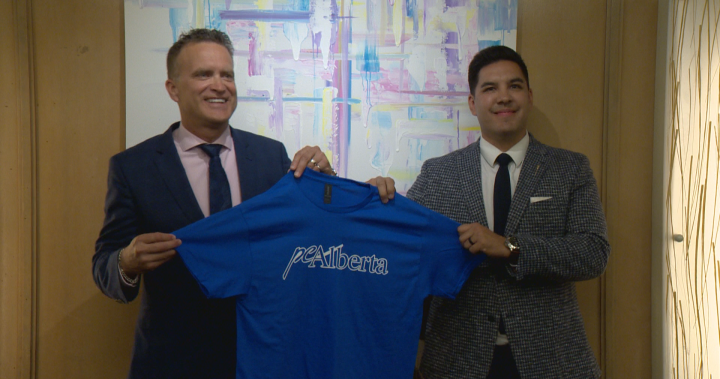Article – As the dust settles on Alberta’s political landscape, a familiar name is stirring once again. Former Progressive Conservative MLAs have begun rallying behind efforts to revive the party that governed Alberta for 44 years before its merger with Wildrose created the United Conservative Party in 2017.
I spent last Thursday evening at a modest community hall in Red Deer, where approximately 150 self-described “PC loyalists” gathered to discuss resurrection plans. The atmosphere crackled with a mix of nostalgia and renewed purpose, particularly as several former UCP MLAs circulated through the crowd.
“What we’re seeing is a genuine hunger for moderate, pragmatic conservatism in this province,” explained David Dorward, former PC MLA for Edmonton-Gold Bar. “Many Albertans feel politically homeless – caught between a UCP that’s moved rightward and an NDP they don’t align with ideologically.”
According to Elections Alberta records, the Progressive Conservative Association of Alberta has maintained its registration despite seven years of dormancy. The party has recently filed updated financial disclosures, suggesting organized efforts behind the scenes to prepare for a potential political comeback.
Katherine O’Neill, former PC Party president, believes timing is everything. “The PC brand still resonates with many Albertans who remember decades of stable government. With Premier Smith’s approval ratings hovering around 37% according to recent Angus Reid polling, there’s clearly space for an alternative conservative voice.”
The revival efforts come amid visible fractures within the governing UCP. Just last month, three sitting UCP MLAs publicly criticized the government’s handling of healthcare reforms, stopping short of crossing the floor but signaling significant internal discord.
“I’ve spoken with dozens of former PC supporters who voted UCP in 2019 because they felt they had no alternative,” said Richard Starke, former PC MLA for Vermilion-Lloydminster who refused to join the merged party. “Many of them feel the UCP has abandoned the progressive elements that made the PC party successful for generations.”
Financial records suggest modest but growing support. The PC Association reported $78,000 in donations last quarter – a small sum compared to the UCP’s millions, but notable for a party without elected representatives or official campaigns.
For everyday Albertans like Janet Kowalski, a retired teacher I met at the Red Deer gathering, the appeal is straightforward. “I voted Conservative my entire life until the merger. The UCP doesn’t represent my values anymore – I want fiscal responsibility without the culture wars.”
Political science professor Duane Bratt from Mount Royal University cautions against overestimating the path forward. “There’s certainly dissatisfaction with Smith’s leadership among traditional PC voters, but rebuilding a competitive political infrastructure from scratch is enormously challenging in today’s political environment.”
The potential PC revival also raises questions about vote-splitting on the right – the very concern that drove the 2017 merger after Rachel Notley’s NDP formed government.
Former cabinet minister Thomas Lukaszuk, who has been vocal about his disappointment with the UCP, addressed this directly: “Albertans deserve choices that reflect their values. If that means multiple conservative options on the ballot, so be it. Democracy isn’t served when people feel forced to vote for the least objectionable option.”
What makes this revival attempt particularly notable is the caliber of former MLAs reportedly involved behind the scenes. Sources close to the effort mention at least seven former cabinet ministers from the Redford and Prentice governments providing strategic guidance, though most have avoided public statements thus far.
At provincial coffee shops and community events across central Alberta, I’ve noticed increasing comfort among longtime conservatives in expressing dissatisfaction with the current government. Small business owner Michael Terrenzio in Lacombe told me, “I want a government focused on practical issues like healthcare and education, not picking fights with Ottawa every other day.”
Election laws require the PC Association to run candidates in at least half of Alberta’s 87 ridings to maintain registration. Party organizers indicate they’re confident in meeting this threshold, with nomination contests potentially beginning as early as next spring.
Whether this revival represents a serious threat to Premier Smith’s UCP or merely a symbolic protest remains to be seen. But in Alberta’s ever-evolving political landscape, even ghosts of political movements past can sometimes find new life – especially when backed by experienced politicians with deep community connections and a clear vision of what they believe went wrong.
For now, the progressive conservative movement is banking on Albertans’ memories being long and their patience with the current government growing short.






